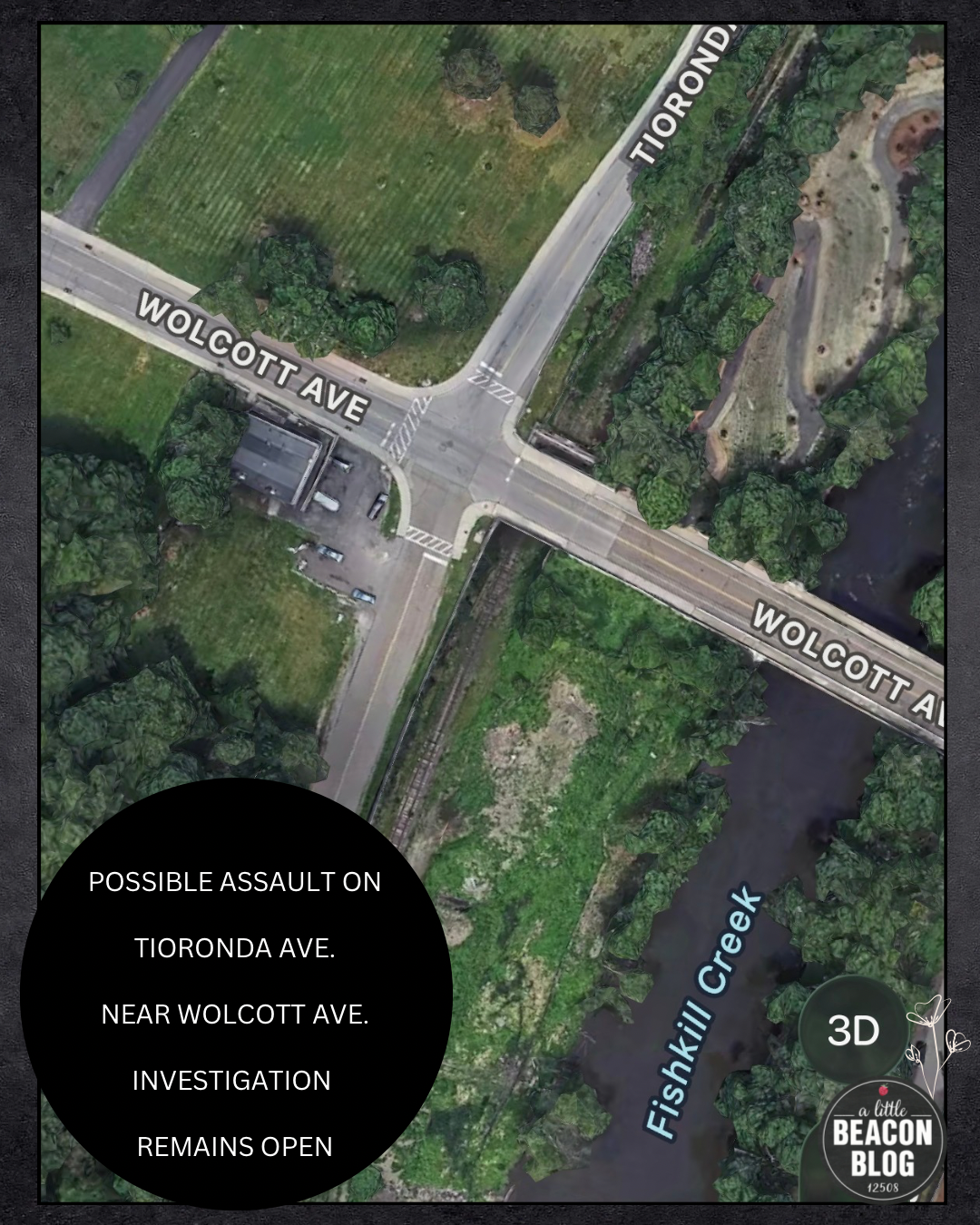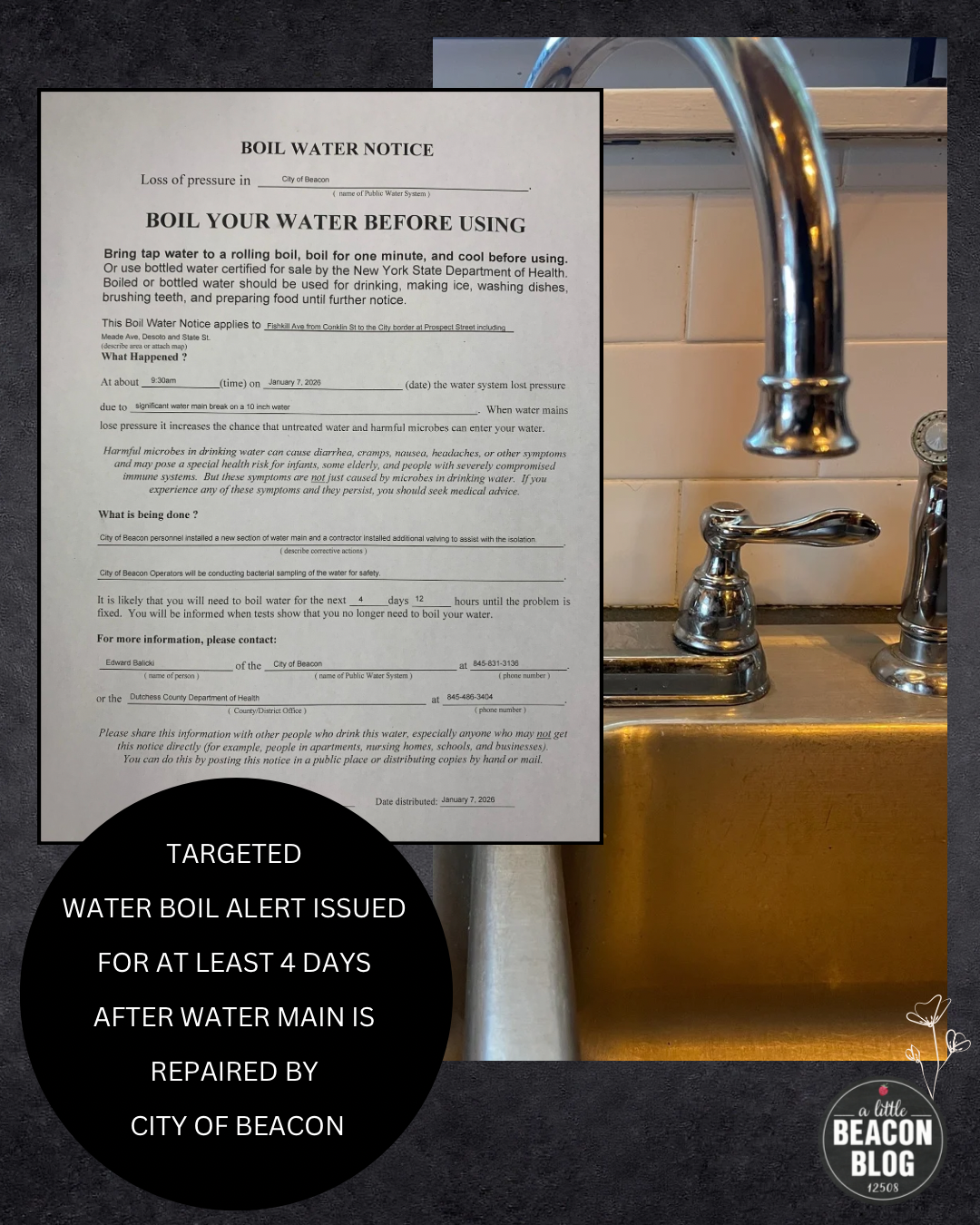"Flawed and Disturbing" Is What Dutchess County Executive Marcus Molinaro Calls Central Hudson's Roll Out Of New Billing System
/Central Hudson, the area’s deliverer of energy and gas, announced that they launched a new “customer information system” on September 1, 2021. As a result, some people did not receive a bill for months, according to complaints voiced on social media and submitted to A Little Beacon Blog. Some people received an “Estimated” bill for 4 months in a row, which according to New York State law, is not within regulation. Central Hudson’s Media Relations Director, John Maserjian, explained that regulation to A Little Beacon Blog:
“The reason Central Hudson reads meters every other month is due to a requirement in 2016 by utility regulators. Prior to 2016, Central Hudson billed every two months with actual meter readings. The state then required Central Hudson to bill monthly, however we were unable to read meters every month without raising rates. The state agreed to allow for estimates every other month, which we have been providing since then. We are now looking into alternatives that would allow for more consistent actual meter readings.”
On February 10, 2022, Central Hudson issued a press release alerting customers to rising electric and gas rates, citing various reasons for the spike, including colder weather this winter, the closure of Indian Point, and a shortage of liquefied natural gas in Europe as the United States is one of the main exporters of liquefied natural gas to Europe, in addition to Qatar and Russia (pre-Russian invasion of Ukraine).
Delivery Dollars In The Details
Residents across the region opened their eyes to how they were being billed by Central Hudson, and started complaining. Especially if they were used to a bill for $500 and received one for $2,500 after receiving no bill for 4 months. According to some customers who shared their experiences with A Little Beacon Blog, they were not offered a payment plan unless they called Central Hudson, usually in a panic about their bill.
According to a letter posted on customers’ February bills, only 5% of customers were effected. According to the wave of complaints in social media, that number seemed higher. Hearing the complaints, The City of Beacon’s Councilmember George Mansfield brought up the confusion he was hearing from residents, which prompted a meeting to be scheduled with Central Hudson and the City of Beacon to present to Beacon residents during a City Council Meeting.
The meeting was scheduled but postponed after the last blizzard caused extreme electricity outages in Ulster County, which Central Hudson worked hard to restore. High level employees of Central Hudson did present to Beacon’s City Council weeks later on February 22, 2022.
Days earlier, on February 16, 2022, Dutchess County Executive Marcus Molinaro issued a statement via press release stating his discontent with Central Hudson’s treatment of billing customers. His statement in full is below:
“Central Hudson‘s roll out of a new billing system and failure to communicate effectively with our residents in anticipation of increased energy costs is flawed and disturbing.
“Gas prices globally have spiked, and nationally we are experiencing an unbearable rate of inflation. Locally, New York State’s decision to close Indian Point shifted the region from a reliance on steady, stable and affordable energy to an unstable commodity*. Bitter cold temperatures have further exacerbated the situation by increasing demand.
“Some of what we’re experiencing can be attributed to bad decisions and bad policy in Albany and Washington, but Central Hudson bears much responsibility here. They knew a rate increase was imminent. They have absolute control over their operations and communications. It is clear based on the countless individuals who have communicated with my office that Central Hudson’s outreach efforts have failed.
“The shocking utility bills our residents are receiving adds insult to the injury from last year‘s flawed rollout of their new billing system. Central Hudson has an obligation to keep our community informed about the cost of the energy they deliver.
“Too many families living paycheck to paycheck cannot bear the weight of inflation. Add to that a confusing and shocking utility bill increase and we have a recipe for disaster.
“Central Hudson must do better. They can do better. It’s time they provide assistance and relief to our residents.”
What Is The “Unstable Commodity” Marcus Molinaro Referred To?
In his statement above, Dutchess County Executive Marcus Molinaro referred to an “unstable commodity.” A Little Beacon Blog followed up to see which commodity he was referring to. His response:
“The unstable commodity is natural gas. The reference to ‘unstable’ relates to the short and long term instability that are often exhibited with raw materials, such as oil or natural gas, due to sudden changes in market conditions that affect supply and demand.
“Indian Point was not a raw material energy producer – the plant had a consistent output that did not fluctuate due to resource availability. It provided approximately 13% of the state’s electricity serving more than 2 million homes.
“To offset the power to provide electricity, New York State permitted three natural gas fired power plants. These plants are subject to the ‘instability’ of fluctuations in natural gas pricing which we are experiencing. The natural gas (commodity) needed for these three plants is not generated locally.
“Demand for natural gas has increased globally—spikes in frigid temperatures and the demand for electric vehicles have further increased the demand on natural gas as a significant amount of the state’s energy comes from natural gas-fired plants. At the same time, the banning of certain ways to source natural gas and the termination of projects or infrastructure to transport gas to the states have reduced supply.”
Reasons For Rising Rate Repeatedly Left Out Of Communications
Despite the closing of Indian Point, residents of Beacon and neighboring municipalities had the opportunity to opt-in to a fixed rate on their energy bill of .06361/kwh (kilowatt hour), which was in a locally legislated deal known as Community Choice Aggregation (CCA) structured and organized by Hudson Valley Energy in July 2019.
After a change in energy supplier (Direct Energy to Columbia Utilities) that rate was renegotiated to $.06572/kwh, far lower than what Central Hudson’s current rate for electricity is ($.21 for February 2022). The rate that Central Hudson charges for electricity is a variable rate, which means that it can change, and is not locked in, like Beacon’s rate is. Central Hudson’s new rate will reach $.21/kwh, as you can see in their chart of monthly rates here.
The source of the lower-priced rate negotiated by Hudson Valley Energy is 100% renewable energy. Usually that does not sit well with proponents of power plants like Indian Point. Currently, the 100% renewable energy is in a fixed, stable rate, and energy and gas prices are variable and spiking.
When the new, locked-in Beacon rate became available in 2019, about 10% of Beaconites opted out, according the Jeffrey Domanski of Hudson Valley Energy, a Beaconite who manages the group-rate fixed rate for Hudson Valley Energy. That was then. Currently, he says that 15% of Beaconites have opted out, with 70% of Beaconties enrolled in the locked-in rate.
Beaconites and any resident of one of the municipalities enrolled in this program can opt-in at any time by contacting Jeffrey directly at cca@hudsonvalleyenergy.org. Those municipalities currently include the City of Beacon, Town of Clinton, Village of Cold Spring, Town of Marbletown, Town of New Paltz, Village of New Paltz, Town of Philipstown, City of Poughkeepsie, Town of Red Hook, and the Town of Saugerties. Learn more about the program here.
Why Isn’t The Lower Locked-In Rate From Beacon’s CCA Headline News?
Why isn’t every Beaconite opted in to the lower locked in rate? Because messaging on it has been confusing from Central Hudson from the beginning. A Little Beacon Blog reported on that confusing letter from Central Hudson years ago, and the confusing messaging hasn’t stopped. Customer service representatives at Central Hudson claim to barely know about it, despite it being signed into legislation by Beacon’s City Council. Messaging from door-to-door peddlers of solar panels have also sown confusion and doubt about the program, according to this writer’s own experience with 2 of them.
At its core, the locked-in energy rate is drawing from 100% renewable energy. Which in and of itself, can draw skepticism from people. Couple that with the solar panel sales people who come door to door (illegally, by the way, as they should not do that without a Peddler’s Permit which they never show - they show their photo ID from their employer but that’s not the same thing as a Peddler’s Permit. they prey on people, especially the elderly who will fall for their very well-crafted sales pitches).
How To Get The Locked-In Rate
This is a developing story. A Little Beacon Blog has more reporting to share with you on it. Know this: If you want to opt-in to the fixed energy rate for Beacon, which is $.06361/kwh instead of the $0.21995 Central Hudson’s variable rate is now up to, email Jeffrey directly at cca@hudsonvalleyenergy.org.
The locked-in rate is not guaranteed to be lower at all times, as the rest of the market fluctuates. Since its start in 2019, it has outperformed the variable fossil-fuel market rate.
For questions about the fixed rate for Community Choice Aggregation (CCA), do not email or call Columbia Utilities, as Central Hudson has instructed you to do. As this is a legislated agreement with several municipalities, it is odd that Central Hudson’s customer service representatives, as well as printed letters from Central Hudson’s marketing department, would divulge such little information about how to get in touch with the point person of the many municipal-wide Community Choice Aggregation (CCA) program that is written into Beacon’s city code.
The point person to hook you up for free to this locked in rate is Jeffrey Domanski of Hudson Valley Energy at cca@hudsonvalleyenergy.org.
NOTE: This locked in rate is not the Budget Billing plan that Central Hudson encourages customers to start. There is much skepticism about that Budget Billing plan, and if it is based on Actual readings, and how many customers have gotten money back if they used less energy and gas then Central Hudson projected for them.
To be continued…







































